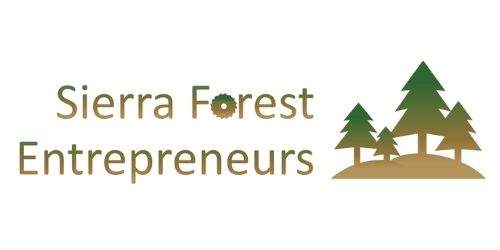By Addie Wright and Lauren Redmore
For rural forested areas across Northern California, economic development initiatives can sometimes be at odds with the environmental and social needs of local communities. As an organization committed to advancing both community and environment, the Sierra Institute has been involved in socio-economic monitoring of many communities over the years.

One such community is the unincorporated town of Westwood in Lassen County. Following the closure of the Red River Lumber Company in the 1950s, this former mill town experienced economic decline, signaled by an array of business closures that have deeply impacted the economic sustainability of the town: schools, a hospital, grocery stores, and most recently, the bank and pharmacy.
Westwood is just one of many towns that grapples with questions of what the future looks like, made all the more real in the weeks following the Dixie fire.
Like many towns across the region, some Westwood residents see the surrounding environment as both an attraction for potential economic development and a hazard, especially given the intensifying threat of severe wildfire that has worsened through more severe drought, decades of fire suppression, and loss of a forestry industry.
Today, there are a few but growing initiatives seeking to improve forest management and bring rural economic development through targeted support to small, local forest businesses.
One such effort is the Sierra Institute’s Sierra Forest Entrepreneurs program, funded by the Sierra Nevada Conservancy. The goal of this program is to provide training and support to small forest business entrepreneurs across the Sierra region, given the critical role they play in supporting forest stewardship, mitigating wildfire, and building rural economies.

The first Sierra Forest Entrepreneurs includes twenty-five participants, including one participant from Westwood, representing a range of small, forest-related businesses ranging from hazards mapping, fuels mitigation, reforestation, small sawmill operations, and wood products manufacturers.
Starting in August and ending in December, participants will receive business development training from the Sierra Small Business Development Center and the California Capital Procurement Technical Assistance Center to grow their businesses. Other special presentations focus on wood products manufacturing operations adding value to timber harvested from fuels reduction projects, including TimberAge Systems, a small-scale mass timber manufacturer from Durango, Colorado, and Heartwood Biomass, a community-scaled firewood business in Enterprise, Oregon. Participants are able to network, and share common challenges and solutions to grow their businesses.
By providing targeted support to small business entrepreneurs in the forestry sector, the Sierra Institute aims to ensure that rural forested communities can mitigate the future threat of wildfire and capture value from lower-value timber. Communities like Westwood can thrive when businesses are aligned with their needs and values.
Given that small forest businesses are a necessary part of a resilient ecosystem across the Sierra, the Sierra Institute will continue to identify ways to champion the work of these entrepreneurs.

